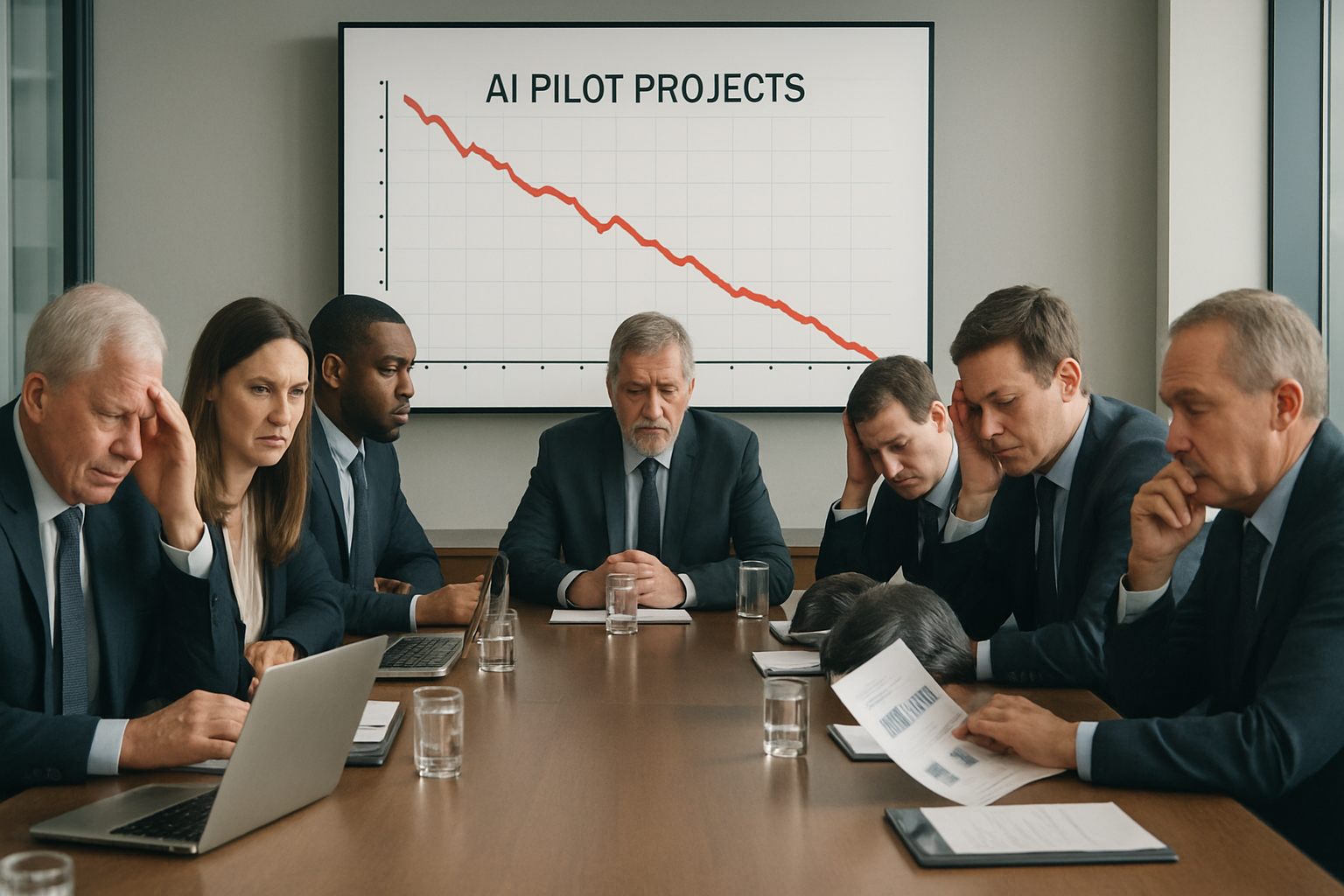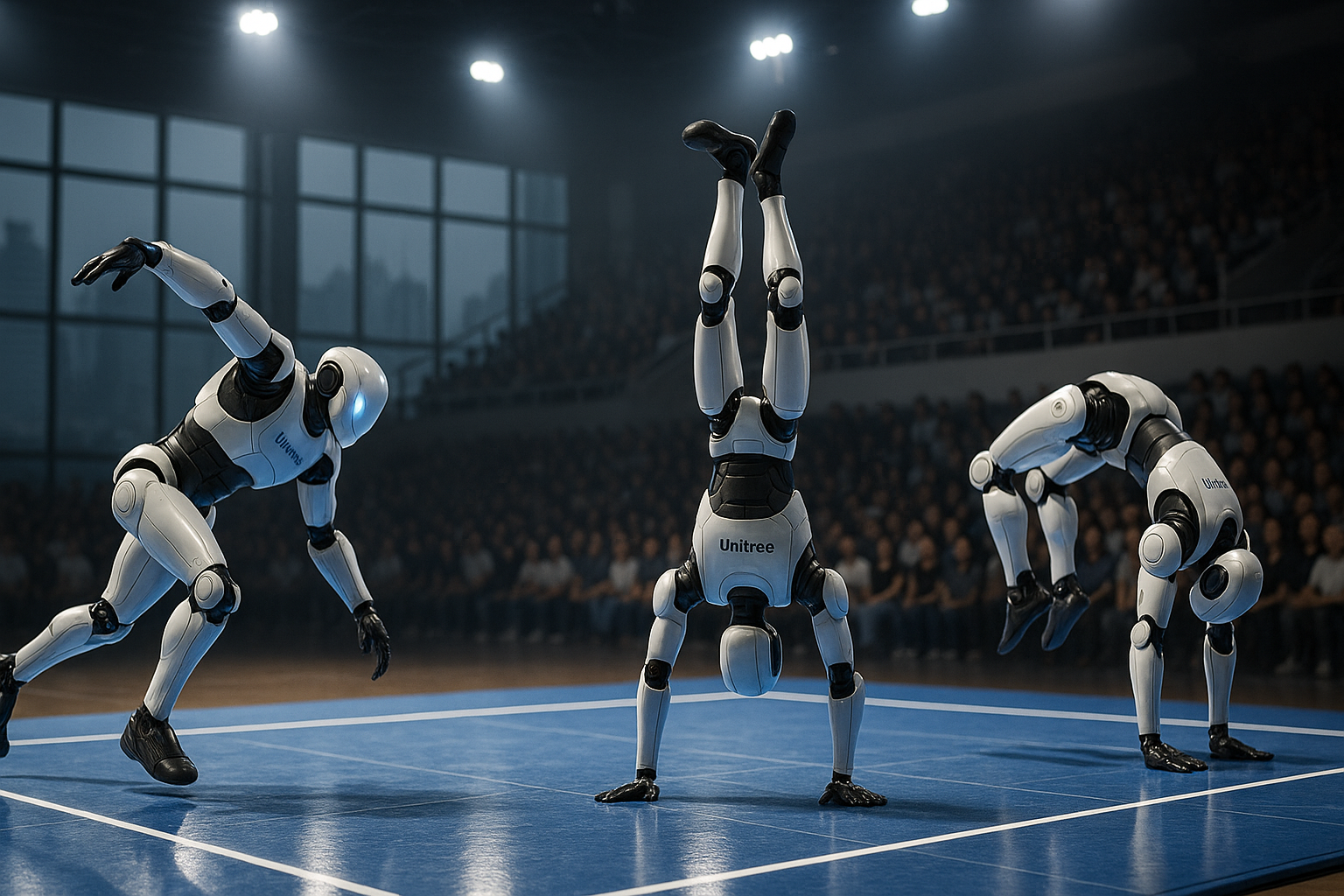Well, well, well. MIT's latest report showing 95% of generative AI pilots failing at major companies shouldn't raise eyebrows for anyone who's spent more than fifteen minutes in corporate America. But here we are, watching another tech hype cycle play out with almost scripted predictability.
I've been tracking technology adoption cycles since the dot-com boom (yes, I'm that old), and what we're witnessing follows what might be called the "Executive Panic Playbook"—a four-act tragedy that unfolds with clockwork regularity.
Act One: The CEO skims a Harvard Business Review article about AI over breakfast.
Act Two: Existential dread sets in during the morning executive meeting. "Why aren't we doing this yet?!"
Act Three: Massive resources get diverted to half-baked initiatives without clear objectives.
Act Four: Disappointment and finger-pointing when the magical AI fairy doesn't deliver immediate profitability.
The companies hitting the wall hardest? Those treating generative AI like a quarterly earnings booster shot rather than a fundamental shift requiring thoughtful integration. Sound familiar? It should—we watched the same movie with blockchain, metaverse, and practically every buzzword-driven tech trend of the past two decades.
Here's what fascinates me, though. This AI narrative has been carrying the market on its broad, algorithmic shoulders for months. Nvidia didn't rocket to a $3 trillion valuation because gamers suddenly needed better shadow rendering. The company's meteoric rise comes from corporations frantically building AI infrastructure to avoid being perceived as dinosaurs by shareholders.
But now comes the interesting part—the market's reaction to this massive failure rate. Two competing narratives are about to battle for dominance:
"The AI revolution was overblown and these technologies aren't ready for prime time."
OR
"Companies are failing because they're not implementing AI correctly—they need MORE investment and better execution."
My money? (Not literally, financial advice this ain't.) Wall Street will latch onto narrative number two faster than you can say "artificial intelligence." There's simply too much institutional commitment to the AI story to let it fizzle over something as trivial as not actually working yet.
Look, markets can sustain inefficient pricing for astonishingly long periods when there's a compelling story involved. Remember Tesla's valuation before it actually turned a profit? Sometimes the narrative is more powerful than the numbers.
This also raises an uncomfortable question about those robust job numbers we've been seeing. How many recent hires were brought on for AI initiatives that might soon be on the chopping block? The labor market has shown surprising resilience, but I've spoken with several recruitment specialists who privately worry about a correction looming specifically in the tech sector.
(And don't get me started on all those "AI strategy" job titles that materialized overnight. Nothing says "substance" like a hastily created position with no clear metrics for success.)
The real irony? Generative AI probably does have transformative potential—just not in the way most corporations are ham-fistedly implementing it. Revolutionary technologies rarely deliver their biggest impacts in the first adoption wave. They tend to reshape industries in unexpected ways and on timelines that make quarterly-focused executives break out in hives.
So what's the smart play here? I'd be watching for companies quietly building actual AI-enhanced products rather than those trumpeting "AI transformation" on every earnings call. The signal-to-noise ratio is approaching zero, but somewhere in that cacophony, real value is being created.
Meanwhile, expect more bewildered C-suite executives wondering why their ChatGPT implementation didn't immediately boost productivity by 30%. The AI revolution isn't over—it's just encountering the reality check phase that every technology must endure before finding its true purpose.
And that... might be the healthiest thing that could happen to it.



